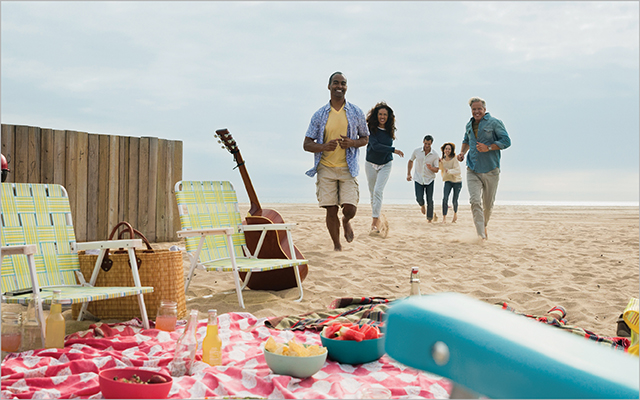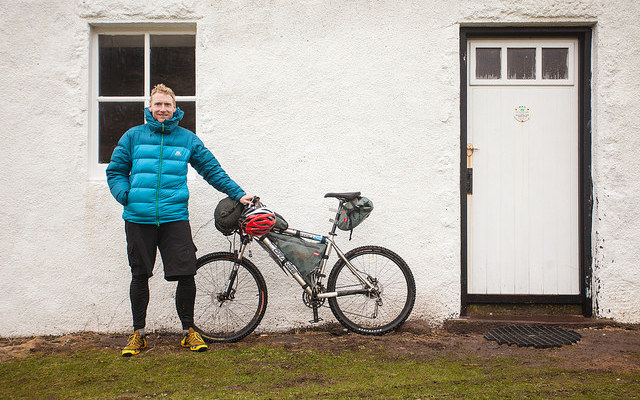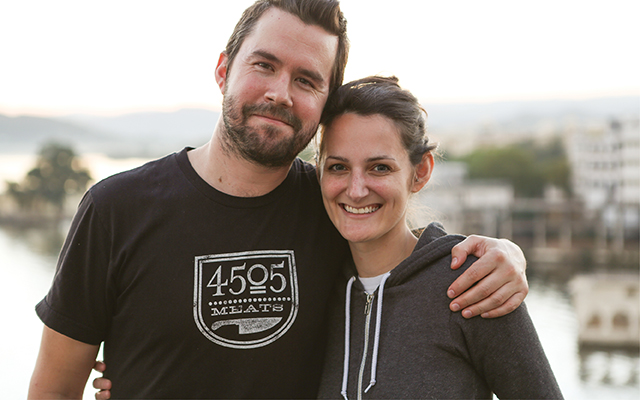Growing up, Jon Levy was a bit of a wallflower. Struggling to fit in, he threw himself into learning about computers. He grew so proficient that his mom enrolled him in a winter camp as a way to get him to socialize more. It was here that he first observed the transformative power of new experiences.
Embracing random adventure has since become a way of life for Levy. The behavioral scientist and author of The 2 AM Principle: Discover the Science of Adventure has run with the bulls in Pamplona, defeated Kiefer Sutherland in a game of drunken Jenga, and explored Israel with a complete stranger.
He never shies away from a party either, thanks to The Influencers, a community he developed that comprises more than 800 thought leaders (including Olympians, celebrities, scientists, and Nobel laureates). A hallmark of this group is The Influencers Dinner, where Levy and a dozen new members of the community gather to cook and share a meal while discussing cutting-edge ideas and developing deep friendships.
One thing he’s learned from his conversations with fellow risk-takers and his own globetrotting is that adventures don’t happen by accident. These are his top tips for embracing life and creating deeper experiences.
Q&A
Experience Life | How do you define adventure?
Jon Levy | The dictionary defines it as “a remarkable journey,” but just because something is worth talking about doesn’t mean it’s adventurous.
I agree that an adventure is remarkable, but it also needs to possess adversity or risk, preferably perceived risk. You can live an incredibly exciting life that’s very safe. Now, there might be the risk of failure, but that’s very different from imminent peril.
Finally, an adventure must bring about growth. The person you are at the end is distinct from the person who started. If you look at any great hero’s journey, you’ll see he or she was changed by his or her experience.
EL | You talk about growth a lot. Why is it so valuable to come away from an adventure a changed person?
JL | Research shows that, in general, people are happiest when they’re doing something just outside their comfort zone. One reason is that the major novelty center of your brain activates and triggers a response that causes and entices you to either explore or learn. It’s actually rewarding you!
Psychologist Mihaly Csikszent-mihalyi, PhD, examined people at peak human performance and discovered there’s a flow state we reach when we feel completely intertwined in our activity. This state of pleasure and bliss over having no self-consciousness occurs under three conditions: The activity requires skill, it’s something we’re striving toward but believe is achievable, and it’s not so hard that we’re constantly failing. If it’s too hard, we become too self-conscious because we’re failing all the time, and if it’s too easy we’re not engaged. (For more on flow, see “Go With the Flow“.)
Growth is an opportunity to get into the state of peak human performance and a way for us to redefine who we are in the process. Long past the time the adventure is over, we self-identify that we have greater capacity in life.
EL | Your goal is to make adventure accessible. Why do you think we often believe adventuring is only for a select few?
JL | I think the stories we’ve been told in books and movies are intended to inspire us to strive further than we think we can, but they often limit our vision.
Heroes — like Indiana Jones, Lara Croft, and Frodo Baggins —accomplish feats that often seem unattainable because their achievements fall outside the scope of normal human experience. As a byproduct, I think it shrinks what people consider extraordinary or what they feel comfortable attempting. When your hero is an immortal video-game character, how are you going to live up to that?
One of the reasons I highlighted the times when I screwed up an adventure is because I think we need realistic heroes. I’m no hero; I’m a ridiculous human being! I want to show people that they can have wonderfully adventurous lives without trying to hike through the Amazon by themselves.
EL | What steps can we take to create what you call “EPIC” (establish, push, increase, continue) outings?
JL | To me, adventure follows four stages. First, you establish or put the right elements in place, such as the people you surround yourself with. You could be in a backyard, and if you’re with the right group of people, you will create something extraordinary.
Second, you push boundaries — social, physical, or emotional. I’m not saying do something illegal; I’m saying do something outside of your comfort zone.
The third stage is to increase, which simply means maximizing your enjoyment. Don’t leave until you have had all the fun you can. Do things that you’ve never done. If you’re with a group, get everyone involved by setting challenges like singing or telling stories.
The final stage is deciding whether to continue or not. Are you ready to keep going or is it time to call it a night? If you want to continue, decide where to go next, how to get there, and then loop back through the first three stages. If you decide to go home, make sure you end in style, because we tend to disproportionately remember the endings of events.
EL | What have you learned from your adventuring and by studying the experiences of others?
JL | First, I’m continuously surprised by people’s generosity. I’ve been in some really precarious situations and in unfamiliar locations and have found that people are typically more friendly, supportive, kind, and considerate than we think or expect.
Second, the world is a much safer place than most media outlets report. We’re instilled with this fear that the world is dangerous rather than wonderful.
Is nature dangerous? Yes. I mean, things happen. But the chances of getting hurt hiking or even skydiving are near zero.
Finally, I’ve learned that the size and meaning of your life is in direct proportion to how uncomfortable you’re willing to be. Life is more interesting and engaging when we say yes to things — even if they make us feel unsettled.
EL | What adventures remain on your to-do list?
JL | Since I’ve done a lot of stupid stuff, I’m pretty injured. I hurt my back doing the running of the bulls in Pamplona, Spain, and can’t do much physically. So I want to spend a year learning something from a master every month.
I’d like to learn the Wim Hof Method, for example. Wim Hof developed a methodology for cold-proofing your body through breathing techniques and, as a byproduct, has climbed some pretty severe peaks in just shorts and sandals. I want to learn to beatbox from the Godfather of Noise, Rahzel, who can do the beat and sing simultaneously.
Adventure isn’t always about going somewhere; it’s also about developing new skills.




This Post Has 0 Comments